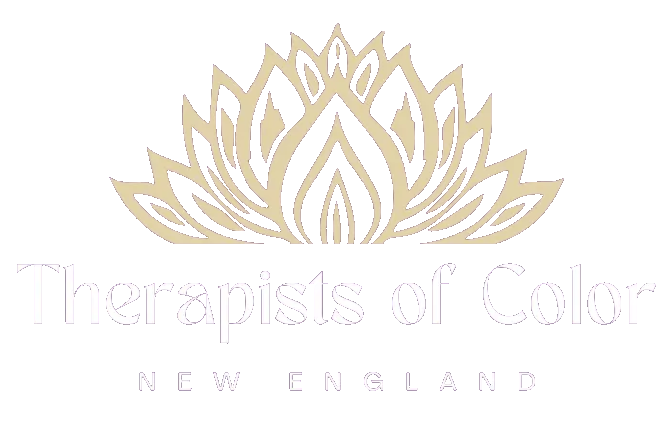Human Connection in Therapy: Why AI Can't Replace a Mental Health Professional

In today’s rapidly evolving world, the promise of on-demand mental health support seems more vital than ever. Artificial Intelligence (AI) tools are emerging as a readily available option, offering everything from mood tracking to therapy-like conversations. While innovative and seemingly hopeful, it’s crucial to understand a fundamental truth: AI is not a licensed therapist. It’s not trauma-informed, ethically accountable, or a substitute for a mental health professional.
As a mental health group practice dedicated to your well-being, we’ve observed the rise of AI mental health apps with both interest and caution. While these tools can offer supplementary support, relying on them as your primary mental health service or a medical necessity raises significant concerns that we believe you deserve to know.
The Surge of AI in Mental Health Support
Mental health AI has seen an explosion in popularity, especially since the pandemic. Apps like Woebot, Wysa, and Replika have garnered millions of users by providing AI chatbot therapy for individuals navigating anxiety, depression, or loneliness. These platforms leverage artificial intelligence to simulate therapeutic dialogue, offering affirmations, Cognitive Behavioral Therapy (CBT)-based techniques, and a digital “voice” for comfort.
The sheer volume of downloads, over 1 billion globally for mental health AI apps during the pandemic, as reported by the World Economic Forum (2023) underscores a profound societal need. People are actively seeking relief, connection, and answers. However, this trend also highlights a concerning gap: AI is stepping in where genuine human connection and professional mental health support should ideally reside.
The Critical Difference: AI Is Not a Trained Professional
Let’s be unequivocally clear: AI, no matter how advanced, cannot replace a licensed therapist. It doesn’t hold degrees, professional licenses, or the ethical accountability required for genuine mental health treatment. AI undergoes no clinical training, supervision, or continuing education. It cannot accurately assess for suicidality, identify trauma triggers, or offer the nuanced cultural competence essential for effective care.
These distinctions are paramount because true mental health care isn’t merely about receiving “good advice.” It’s about safety, ethics, trust, and professional regulation. When someone is in crisis or profoundly struggling, they need a mental health professional who understands human nuance, context, and the critical clinical red flags.
Consider this: an AI might tell you to “challenge negative thoughts,” but a human therapist understands why those thoughts are there, perhaps linked to a past trauma, and approaches it with sensitivity, not just a generic technique. AI lacks intuition; it cannot perceive body language, interpret tone of voice, or recognize dissociation. It simply cannot “hold space” for you in the profound way a human counseling service provider can. A trauma-informed care provider, for example, understands how past experiences impact present behavior and emotions, approaching each client with sensitivity, recognizing triggers, and ensuring safety, something an algorithm cannot genuinely achieve.
Furthermore, licensed therapists adhere to strict ethical codes set by professional bodies. This includes confidentiality, professional boundaries, competence, and informed consent. If a therapist acts unethically, there are regulatory bodies to hold them accountable. With AI, this critical framework doesn’t exist, leaving users vulnerable.
As cautioned by a 2021 report from the American Psychological Association (APA), while AI tools can support mental health efforts, they are “not intended to replace traditional therapy or provide emergency services.”
Overlooked Risks: Privacy and Data Concerns with AI Therapy
Another significant, often overlooked risk of AI therapy tools involves privacy. Many AI mental health apps collect highly sensitive personal data like your innermost thoughts, moods, and daily routines and store it in ways that are frequently not transparent.
A 2022 study published in JAMA Network Open alarmingly revealed that nearly 80% of mental health apps share user data with third parties, often without explicit consent. This isn’t just questionable; it’s potentially dangerous. When you open up about your trauma, family dynamics, or mental health diagnoses, that deeply personal data should be held sacred. With AI, it often becomes a commodity. Even when data is “anonymized,” sophisticated techniques can sometimes re-identify individuals, particularly with highly personal details shared in mental health apps, posing an ongoing risk.
Why People Still Turn to AI: A Systemic Issue
It’s vital to acknowledge why individuals gravitate towards mental health AI. The primary reason is accessibility when traditional therapy feels out of reach. There are no lengthy waitlists. It’s available 24/7. It offers a perceived lack of judgment. And for many, it feels far more approachable than a daunting intake form or a frustrating battle with insurance providers.
For numerous individuals, especially those in rural areas, low-income households, or communities of color, AI tools may appear to be the only available form of mental health support. This reality is heartbreaking, and it speaks volumes more about the critical failures of our current healthcare system than it does about the inherent promise of technology. While AI might offer instant access, we understand that finding quality, accessible human therapy can be a challenge. At Therapists of Color New England, we strive to minimize wait times and offer flexible options because we believe everyone deserves real, compassionate care.
The Bottom Line: Use AI Wisely, Prioritize Human Connection
We are not advocating for a complete dismissal of AI in mental health. It can serve as a valuable companion tool, a private space to reflect, journal, practice grounding skills, or perform a quick emotional check-in. However, AI should never be mistaken for clinical therapy or used as a replacement for genuine human support when you are in crisis or navigating deep emotional pain.
Here atTherapists of Color New England, we believe you deserve real care and the transformative benefits of human therapy. We are committed to providing culturally responsive, trauma-informed care and a safe, confidential space where you can connect with a licensed therapist who truly knows how to support you. Our therapists offer genuine empathy and a dedicated space where you can feel truly seen and understood – a connection fundamental to healing that no algorithm can replicate. Unlike generic AI responses, our therapists provide tailored strategies and insights based on your specific challenges, history, and goals, utilizing evidence-based approaches like CBT or DBT when appropriate. At Therapists of Color New England, your privacy and confidentiality are paramount. We adhere to the highest ethical and legal standards, ensuring your sensitive information remains secure and truly sacred.
Here’s what we recommend for your journey to mental well-being:
Use AI with clear boundaries, never as your primary therapist.
Always prioritize seeking licensed mental health care whenever possible.
Be extremely mindful of data sharing policies before entering personal information into any app.
Recognize that AI cannot replace the profound healing power of human presence, empathy, and connection.
If you are considering therapy near you or looking for compassionate counseling services, we encourage you to explore the difference that a human connection can make. Our experienced mental health professionals are here to offer the personalized, ethical, and deeply human support you deserve.
Are you seeking effective online therapy or in-person counseling services? Therapists of Color New England provides professional, empathetic support. We offer online therapy services and mental health professionals in Manchester, NH. Discover how a human therapist can truly understand and guide you. Explore our team and reach out today.

LaToya Olsen
Intern
Therapists of Color New England

